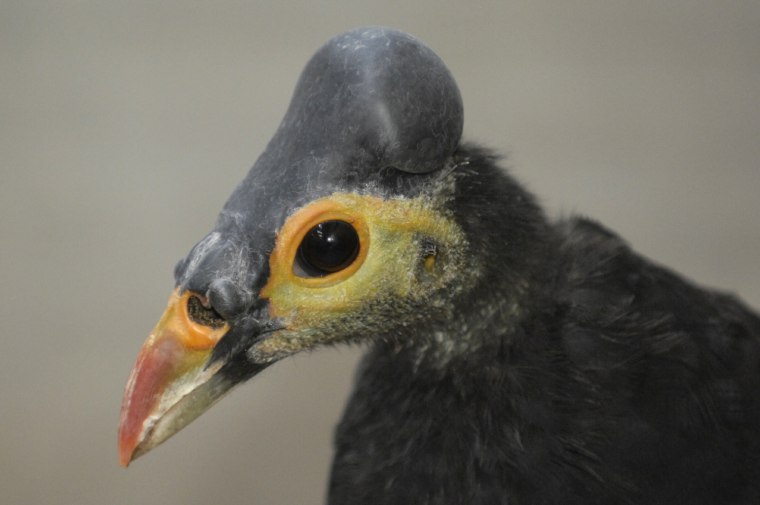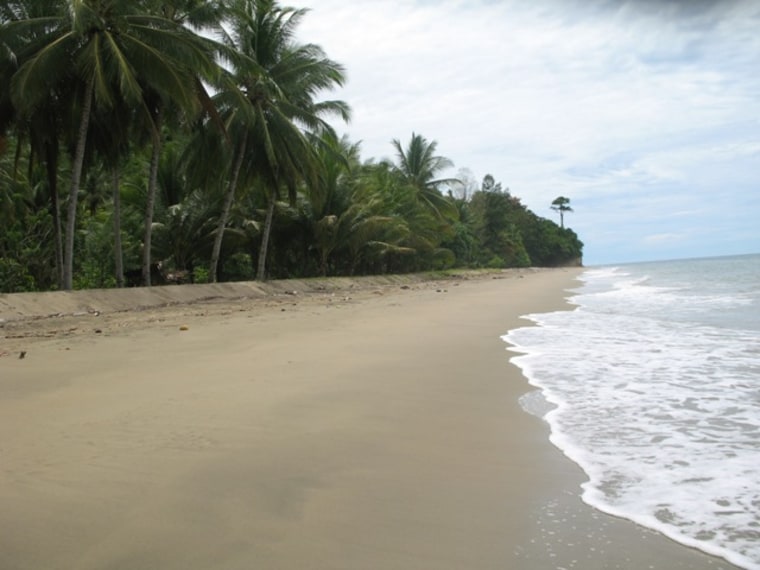An idyllic stretch of beach in Indonesia has been sold — not to developers but to protect an endangered bird species, and it only cost $12,500 to acquire the exotic address.
The 36-acre parcel on the island of Sulawesi has become a protected nesting habitat for the maleo, which buries and incubates its eggs in the warm sand, the New York-based Wildlife Conservation Society said in a statement Tuesday.
Maleos — about the size of chickens with black backs, ping stomachs and yellow facial skin — are found only on Sulawesi. Like many birds and sea turtles, maleos have been targeted by poachers for their eggs.
"Protecting this beach is just the first step in what will soon be a comprehensive conservation project for the benefit of the maleo," Noviar Andayani, who works in Indonesia for the Wildlife Conservation Society, said in the statement. "Fewer than 100 nesting sites still exist throughout the bird’s entire home range, so every one counts."
The bird's eggs are some five times larger than those of a chicken and are buried by the parent birds in the soil and then abandoned. The chicks hatch and emerge from the soil able to fly and fend for themselves.

The beach was bought with donations from the Lis Hudson Memorial Fund and the Singapore-based company Quvat Management. The project also was supported by the Wildlife Conservation Society and the Dutch-based Van Tienhoven Foundation.
To celebrate the beach’s protected status, the partners recently released four maleo chicks as well as 98 green, leatherback, and olive ridley sea turtle hatchlings into the sea. The wildlife society said it also safeguards turtle nests, which produced some 500 hatchlings this season.
The 36-acre plot also supports a farm that produces more than 10,000 coconuts a year. "Funds from the harvest will be used to pay local guards to protect the beach’s wildlife," the society said.
